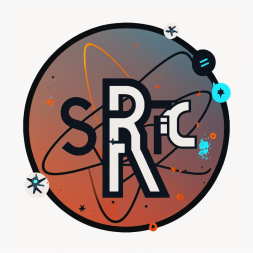If the Universe began with the Big Bang, what existed before? And if the Universe has a limit, what is beyond it? Two deceptively simple questions cosmologists have been struggling with for decades. Let's look at the latter first.
As far as we can tell, in its first moments of existence, the Universe underwent an enormous and almost instantaneous burst of expansion called inflation. It continued to expand at a more measured pace ever since. Photons from distant galaxies reaching us today have travelled through the space with the speed of light for billions of years, but none of them for longer than 13.8 billion years - our best estimate of the age of the Universe. This tells us that there's a limit to the Universe we can observe. If we take into account that the Universe has been expanding while the photons were on their way, the distance to the farthest visible object (we call it the particle horizon) is now approximately 46 billion light-years.
But that doesn't mean that there's nothing beyond the limit of the observable Universe. When we trace the expansion back to the time before inflation, all that we can see today would have fit within a sphere 10⁻²⁷ m across, smaller than any known elementary particle. But it is conceivable that there was something outside that tiny bubble and that inflation expanded that space too. All that space would have ended up outside the particle horizon of our observable Universe. We can't see them since the photons from those objects haven't had time to reach us yet. Depending on how fast the Universe expands, these areas may, with time, find themselves inside the horizon and become observable. (Not, however, if the Universe is dominated by the cosmological constant - the dark energy - which it is expected to become in the distant future.)
Now for the more complicated question of what existed before the Big Bang. The conservative answer is that we just cannot know. Our knowledge of the early Universe is based on the laws of physics we've been able to discover thus far, and these laws of physics break down as we get to the very moment of the Universe's beginning. It appears that the concepts of space and time themselves disappear in the initial singularity. We can say that space and time came into existence at that very moment and that there's no point of asking what was before, since the word "before" doesn't make sense. This answer doesn't feel satisfying though, so cosmologists have been looking for hypotheses outside the well established theories, in search of better answers.
One such hypothesis proposes that inflation continues to take place even today. It is propelled by an inflaton field which spontaneously decays in random areas. Those areas become "baby universes" with their own big bangs. The inflation never stops and new bubbles continue to be created forever. Our Universe is just one of many such bubbles. After more careful considerations, however, it turns out that such bubbly multiverse would also, alas, need a beginning.
Another concept is that of a "cyclic universe". Derived from string theory, the hypothesis postulates that our Universe is a four-dimensional "brane" in a higher-dimensional space. It repetitively collides with another such brane. The collisions result in tremendous release of energy and creation of matter which we'd observe as the Big Bang. Again, it turns out that these periodic collisions of branes also must have a beginning.
Another model of an eternal universe assumes that it was initially small, static and existed in such uneventful state forever. Then, suddenly, out of the blue, it inflated and underwent a Big Bang. Not a very attractive model, but it does arise in some versions of string theory.
It appears that, conceivably, there was something before the Big Bang. However, all plausible models only push back the question of the ultimate beginning. Considering that we may be living in only one universe in a sea of uncounted other universes and that uncounted generations of earlier universes may have existed before ours, we may never be able to actually understand how it all initially came to be. But that doesn't mean we'll stop trying.
http://www.newscientist.com

No comments:
Post a Comment